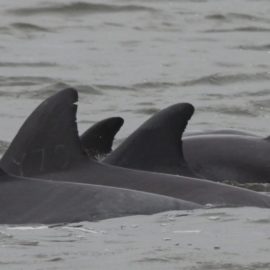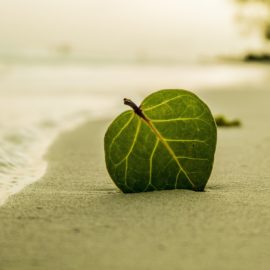
LT Gov Billy Nungesser does not like the Mid-Barataria Diversion and he is now visiting the parishes involved and strongly denouncing it. He us using his former position in Plaquemines Parish to true effect. The CPRA is accompanying him and speaking of the benefits but the mood is not good for them.
Lt. Gov. Billy Nungesser continued his tour of southeast Louisiana Wednesday in opposition of the Mid-Barataria Sediment Diversion Project, attempting to rally the Jefferson Parish Council against the keystone of the state’s 50-year master plan to slow coastal land loss. Nungesser, a former Plaquemines Parish President who is widely thought to be considering a run for governor, argued that the project’s negative impact on fisheries and marine species outweigh the hoped-for benefits. “Many believe it will harm our coast rather than help,” Nungesser said. “I am here to sound the alarm.” Nungesser made his comments during a special presentation to the parish council, which did not take any action on the matter. He has made similar pleas to the St. Bernard and Plaquemines Parish councils, both of whom followed with resolutions against the project.
nola.com
Chip Kline, of the Coastal Protection and Restoration also spoke.
Chip Kline, head of the Coastal Protection and Restoration Authority, also spoke to the council in favor of the project and took issue with several of Nungesser’s assertions.”Here are a few things we know for sure,” Kline said. “The Mississippi River built the land we stand on today. Our land loss crisis started when the river was leveed.” The diversion, he argued, comes closer than ever before to restoring the natural process that built Louisiana’s deltas in the first place. “Every study calls for reconnecting the Mississippi River to the marshes,” he said. “It’s a lifeline to a sustainable coast.”
The Mid-Barataria Diversion is a $2 billion project to bring sediment from the Mississippi to Barataria Basin.
The Mid-Barataria Sediment Diversion is a $2 billion project that will send freshwater from the Mississippi River over a weir and through a channel into the brackish marshes of the Barataria Basin. The goal is to capture river sediment and send it into the marshes, mimicking the process that built most of south Louisiana thousands of years ago. It has the backing of government officials and environmental groups alike. “The reason for this project and others like it is to restore and recapture the system that we once had so that it can in fact be healthy again,” said Steve Cochran, with the group Restore the Mississippi River Delta.
Nungesser however, was not swayed and continued with his opposition.
But for Nungesser, the impacts of that cold freshwater laden with fertilizer runoff spells doom for commercial and recreational fisheries. “It’s not a freshwater diversion, it’s a polluted water diversion,” he said. He pointed to the 2019 opening of the Bonnet Carre spillway, which sent trillions of gallons of river water into Lake Pontchartrain and from there into the Mississippi sound, where it was blamed for the deaths of hundreds of dolphins. Similar results would come from the diversion, Nungesser said. “Dolphins (in Barataria Basin) will die a slow, painful death,” Nungesser said. The river water will also wipe out populations of brown and white shrimp, oysters and other key fisheries, he added. The state should pursue other forms of landbuilding, including dredging and putting rocks and berms in strategic areas, Nungesser said.
Commercial fishermen have opposed this project from the start.
A number of commercial fisherman have for years vocally opposed the project. Several of them went to the microphone Wednesday to encourage the Council to oppose the project. An Environmental Impact Study “has made it clear that we are going to have serious damage within the Barataria Basin to all of those resources,” said Tracy Kuhns, president of a group call the Go Fish Coalition. “The bottom line is, we support all of the coastal restoration projects with the exception of the two polluted-water diversions.” “They think Mississippi River water is the only way to deliver the sand,” fisherman Mike Roberts said. “Make no mistake, we will be severely impacted.”
Kline recognized that there was a down side to the project but noted that there is money available for mitigation of problems.
Kline acknowledged that there would be negative impacts from the diversion, including to fish species and to fishermen. But, he said, the program would set aside a minimum of $300 million to help mitigate those impacts. Kline closed with a warning about scuttling the project. “We have to do this project if we stand a fighting chance against the various factors of coastal land loss,” he said. “We cannot dredge our way out of this problem.”
Nungesser is in favor of dredging. The project is still years off and there will be more hearings. Then the Corps will either say yes or no. Climate Change seems to be more recognizable and our land loss continues. Something needs to be done. Quickly.



